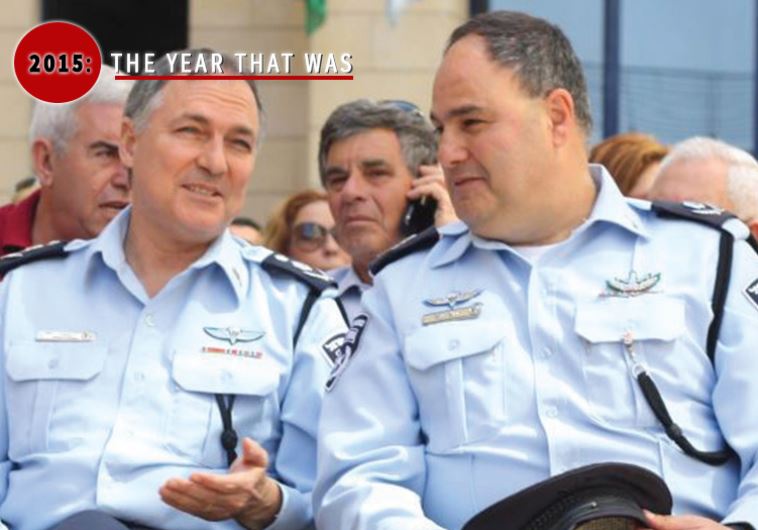He could have been a contender
Outgoing Asst.-Ch. Bentzi Sau tells the ‘Post’ what it’s like stepping into his predecessor Yohanan Danino’s shoes during a wave of terrorism.
 Asst.-Ch. Bentzi Sau (right) sits with former police chief Yohanan Danino at a ceremony(photo credit: JPOST STAFF,BEN HARTMAN)Updated:
Asst.-Ch. Bentzi Sau (right) sits with former police chief Yohanan Danino at a ceremony(photo credit: JPOST STAFF,BEN HARTMAN)Updated: